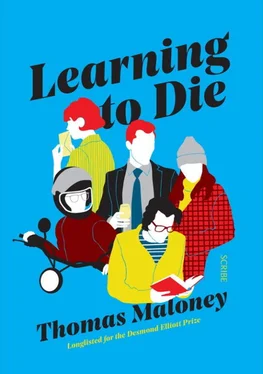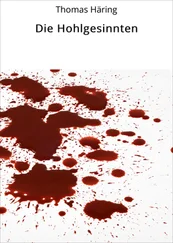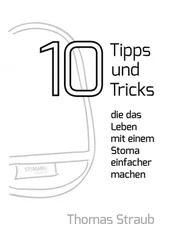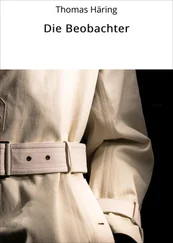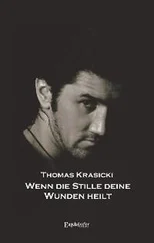So much for the circumstances of his misfortune. How should he evaluate the pathological details? How does that so-much-commoner fate than his, cancer, compare? More pain, probably (he reserves judgement). More tangible destruction. For many, a cruel and tantalising brush with remission; no such uncertainty for him. On the contrary, his diagnosis has brought more clarity, more certainty: his fate. And let’s spare a thought for the wider, subtler net of misery cast by behavioural disorders — addiction, uncontrolled anger, dysfunctional families, unspecified or undiagnosed sicknesses of the soul. Digging a lonely hole — hurting those you need most. For Dan, instead — so far, at least — a cradle of generosity, good intentions and love.
There’s one more misfortune to add to this by-no-means exhaustive parade of woe: just getting old, with its slowly gathering conspiracy of health gremlins. The big one. The inescapable elephant in the room of life. Arthritis, incontinence, memory loss, deafness, a dicky ticker, all weighing heavy against the supposed consolations of wisdom. With each passing year the odds leaning further in the wrong direction; the youngsters’ world a foreign country; friends and siblings going or gone. Marriages skewed, like Dan’s will be, into carer and cared-for, or the roles of child and parent humiliatingly reversed, or the lingerer a mere burden on the buckling state, a life reduced to an unsustainable statistic. The long, crabby descent. Decades, perhaps, to taste its unfathomable sadness.
Life without motor neurone disease, Dan concludes, is no picnic either. The more he ponders his predicament, the more he regards its fundamental substance as universal. The diagnosis has merely rearranged his woes, given them a vigorous shake like dice in a bag. The arrangement is unique to each of us, yes, but everyone has the same dice, and the same sumptuous, moth-eaten, ridiculous bag of life.
Mike Vickers appraises himself in the lift’s mirror: a daily indulgence. The eyebrow cocks itself without his prompting. Would you trust this man? Another daily ritual — now lapsed — was to peer over the polished railings of the stairwell on his way to the trading floor. This was to commemorate his once overbalancing while hitching an intransigent sock en route to a meeting, and coming absurdly close to pitching over the rail; the meeting was a great success. I see you, old boy, he would murmur each morning to Death, smiling up at him from a depth of eighty feet. I know all about you. Turning away would feel like a gift, a lucky break — but somehow he lost the habit.
He’s meeting Dan tonight for one of their periodic chit-chats. If his old friend asks him what he’s done with his fabulous riches, he’ll say he’s biding his time — gathering his thoughts before stepping boldly into a new life. Measure twice, cut once, as his dad would say. His experimental purchases of Life, by the yard or by the glass, so seemingly insipid or absurd, have, after all, a potent narcotic aftertaste. He forgets himself. Political hoo-ha about a double-dip recession appears charmingly abstract; old doubts have lost their sting. But the swimming pool of digits isn’t a legitimate topic of conversation, even with Dan.
Strolling beside the canal after work, Mike tries to conjure the spirit of their friendship. For the first five or six years, the two of them were merely rivals, eyeing each other coldly in the run-up to Exam Week and passing the hallowed Form Prize back and forth each summer. By the age of thirteen, each had studied the other’s weaknesses so intimately, and found them to be so perfectly non-overlapping with his own, that an alliance seemed not just desirable but inevitable. The next two decades have laboured the point.
As he approaches the usual pub, a black cab pulls up outside. A pair of crutches emerge from the open door and a hand gropes at the roof, hauling its owner upright.
‘Do you need some help?’ asks Mike, stepping forward and opening the door more fully with a benevolent flourish. For once, he’s going to be a good egg. The struggling invalid looks up and smiles wearily.
‘Dan! Jesus! What have you done to yourself?’ Mike helps him arrange the crutches and closes the door. ‘You went and crashed the bike. Am I right? I knew you would. Closet adrenaline junkie.’
‘You are right,’ says Dan, ‘but you’re also wrong.’ There’s no sign of a cast on his leg. He’s wearing a normal shoe. Mike has a sudden feeling of disorientation.
‘Dan, what is it?’
‘Buy me a bloody drink and I’ll tell you.’
‘We are each of us richer than we think.’
Montaigne
There is, of course, no answer to James’ letter. The involuntary yearning that may still be, for all he knows, an emanation of his buried self constantly draws his thoughts after it, northward. But his love (the conventional terminology) is wary now: to chase after Brenda — actually to invade her mountain retreat, to knock on her door and rap on her windows — seems unthinkable. This is why his limp, weary body is heading south, towards Mike.
The smarmy spiv isn’t looking so smarmy when he opens the door. His face is flushed and puffy, his shirt creased, he didn’t shave this morning.
‘Speculation go bad?’ says James. ‘Pesky third world farmers get one over on you?’
‘Shut up and come in,’ says Mike. ‘It’s good to see you.’ James walks into the well-remembered party space, now empty and mildly dishevelled. A bog-standard bachelor pad with added trinkets and stretched dimensions. Brenda stood there, and there.
‘As it happens,’ says Mike, already pouring from an open bottle, ‘I did donate four million dollars to global markets on behalf of my investors today — but that’s par for the course.’ He hands James a predictably oversized glass, sweeps some obstructions off the sofa — a jacket, a blinking phone, The Economist , an auction catalogue — and slumps down. ‘I also met an old friend yesterday — or rather, a young friend — and found out—’ He hesitates, and the last remnants of his chirpy, salesman’s inflection drain away. ‘I found out he’s dying. Has been for while, and I didn’t know.’
James studies the frown drawing Mike’s translucently blond eyebrows together. Privilege, he thinks, confronted by something that can’t be bought off. The indignation! But James knows what it’s like to lose friends.
‘At least you know now,’ he offers.
‘I was his best man,’ confesses Mike. ‘I sort of compare myself to him, if you know what I mean. I’ve always felt like the two of us are just setting out, like nothing is ruled out yet. Suddenly he’s out of the race, just like that.’ Mike looks up at his ridiculous chandelier as though at a religious icon. ‘Still, he’s achieved more than I have. He’s a world expert on — what was it? — insertion devices in particle accelerators. A finger in the pie of progress. Whereas I—’
‘Your only achievement has been to perfect the art of being a total insertion device.’ Mike nods without smiling.
‘This job — ’ he waves dismissively at the phone ‘—was supposed to be a temporary diversion. Work experience. In the last few years, since I turned thirty, I’ve started hearing a whispering, a warning that I need to get a move on and do something meaningful, but I haven’t listened to it.’
‘ Meaningful ?’ scoffs James. ‘It doesn’t have to be meaningful. It only has to be useful — or scratch an itch.’ He yawns, recognising no obligation to display pity he doesn’t feel. It’s nice to have a partner in failure, though. ‘It’s pathetic, isn’t it, how we all fall for the same stupid delusions, just like our parents, and their parents, and everyone else on this deluded planet.’ He rummages in his bag, extracts the leather-bound Montaigne and holds it out. ‘Here.’
Читать дальше
